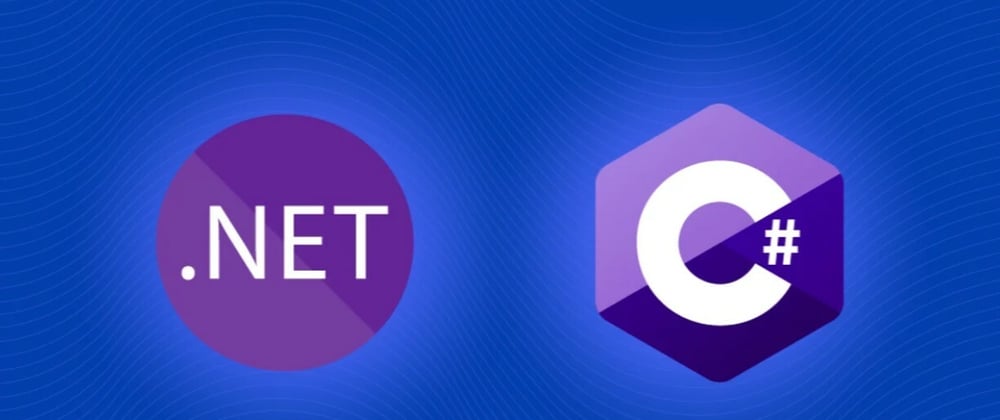This article was written by Educative's Co-founder and CEO, Fahim ul Haq.
It's time to take another look at .NET and C#.
As a former systems engineer who co-founded a startup dedicated to helping developers learn, I'm deeply invested in knowing what software development technologies are in demand. So I find it fascinating that amid constant evolution and change, one of the current trends in 2023 is the continued prevalence of .NET development with the C# programming language.
The .NET framework has remained steadily popular while newer technologies have emerged, according to the Stack Overflow Developer Survey.
The tech world is constantly evolving, but .NET has been Microsoft’s primary developer platform since 2000, and it continues to thrive. With Microsoft's recently stated intention to continue investing in .NET and C#, I'm certain they will remain competitive and relevant for many years to come.
One of the things I love about .NET and C# is its versatility. They can be used for various applications, from desktop to web to mobile development. Plus, they're also ideal for building cloud-based apps, which have become incredibly important in today's tech landscape. As I emphasized in my previous newsletter, the rise of cloud computing means applications are increasingly dependent on distributed systems, a trend that we expect to continue.
I have some perspectives on why .NET development with C# is gaining prominence among developers. I'll also share one of my favorite .NET and C# resources on Educative to help you get started.
Fundamentals of .NET and C
What began as Microsoft's response to Sun Microsystems and its Java platform has become an open-source framework for developing all kinds of applications. Whether you want to become a web developer, write software for mobile devices, or even want to create modern desktop applications, .NET has you covered.
Quick facts about .NET
.NET is a software development framework created by Microsoft that provides a platform for developing and running applications on several operating systems, like Windows, macOS, and Linux
It was first introduced in 2000 and has since expanded into a set of powerful tools and frameworks for building modern and robust applications
.NET supports a wide range of programming languages, including C#, Visual Basic, F#, and others
.NET has a large library of pre-built classes and functions, known as the .NET Framework Class Library, which improves efficiency in developing applications
.NET’s runtime environment is known as the Common Language Runtime (CLR), which manages the execution of .NET applications and provides features like memory management, security, and exception handling
.NET is open-source and cross-platform
Some popular .NET tools and frameworks are ASP.NET, Entity Framework, Xamarin, and .NET Core
Quick facts about C
C# is a modern, object-oriented programming language developed by Microsoft
It was first introduced in 2000 as part of Microsoft's .NET framework
C# is simple, powerful, and type-safe
C# is used to build desktop, web, game, and mobile applications
C# supports both static and dynamic typing
It includes a garbage collector that automatically manages memory allocation and deallocation
6 reasons for the continued relevance of .NET and C
1. Cross-platform development
With C# and .NET, you can create applications that have the capability to run on multiple platforms, including Windows, macOS, Linux, and even on mobile with iOS and Android. You can reach a wide audience and build applications that can be used on different types of devices.
2. Integration with Microsoft products
Mastering C# and .NET makes it easier to develop and deploy applications on the Microsoft platform, which is ideal if you’re working for companies that rely heavily on technologies such as Azure and Visual Studio. These skills can also enable you to work on the future of AI models, such as Microsoft's ChatGPT and Bing AI, which are increasingly gaining prominence in many industries today.
3. Scalability
C# and .NET are highly scalable technologies suitable for small and large applications, including desktop, web, game, and mobile apps, making them ideal for enterprise-level applications. This versatility also means that you can use these technologies to build any type of application to best suit your and your organization's requirements.
4. High demand in the job market
C# and .NET developers are in high demand among startups and big tech companies alike. Employers are always seeking developers with expertise in .NET and C# since these technologies are now frequently used in enterprise-level applications. Given this demand, investing your time and effort in mastering these skills can set you apart and substantially increase your chances of securing employment, even in today's uncertain economy.
5. Active developer community
C# and .NET have a vast and active developer community, providing numerous resources for learning and development, including online tutorials, forums, and documentation. So whether you're a novice or an experienced developer, you'll be able to find enough support to help you learn and grow.
6. Easy to learn
C# is a relatively easy programming language to learn, especially if you're already familiar with other object-oriented programming languages like Java or C++. Its simple syntax is intended to be both powerful and type-safe, so you can start creating applications quickly and efficiently without relying on a steep learning curve.
The future of .NET and C
Finally, the potential for future growth of these technologies is exciting and worth watching. Microsoft promises to continue enhancing C# to support developers' evolving needs, ensuring it remains a state-of-the-art programming language.
We also expect to see C# developers collaborate with .NET library and developer tool teams on exciting innovations that expand the language's potential while maintaining its core essence. Therefore, with its continuing popularity among developers, I fully expect that .NET and C# technologies will remain prevalent choices for numerous high-performance software development projects.
Ready to master C# and .NET?
At Educative, we offer courses designed by industry experts to empower developers of all skill levels. That's why I'm thrilled to introduce our new course, Mastering C# and .NET.
This course consists of 110 interactive lessons that cover the fundamental concepts of C# and .NET. Upon completion, you will have a comprehensive understanding of the .NET platform and its capabilities. You'll also be grounded in the fundamentals of C# including object-oriented principles to build applications with .NET and C# on almost any platform.
It's no secret that there is a shortage of highly skilled software engineers, including those with expertise in C# and .NET. Despite recent widespread layoffs, software development continues to be a promising career path with lots of growth potential. The continued importance of .NET development with C# makes this an excellent option for your continuing education. With .NET evolving and improving under Microsoft's watch, there will only be more opportunities and demand for building scalable applications in its ecosystem with C# and other programming languages.
As always, happy learning!







Top comments (0)